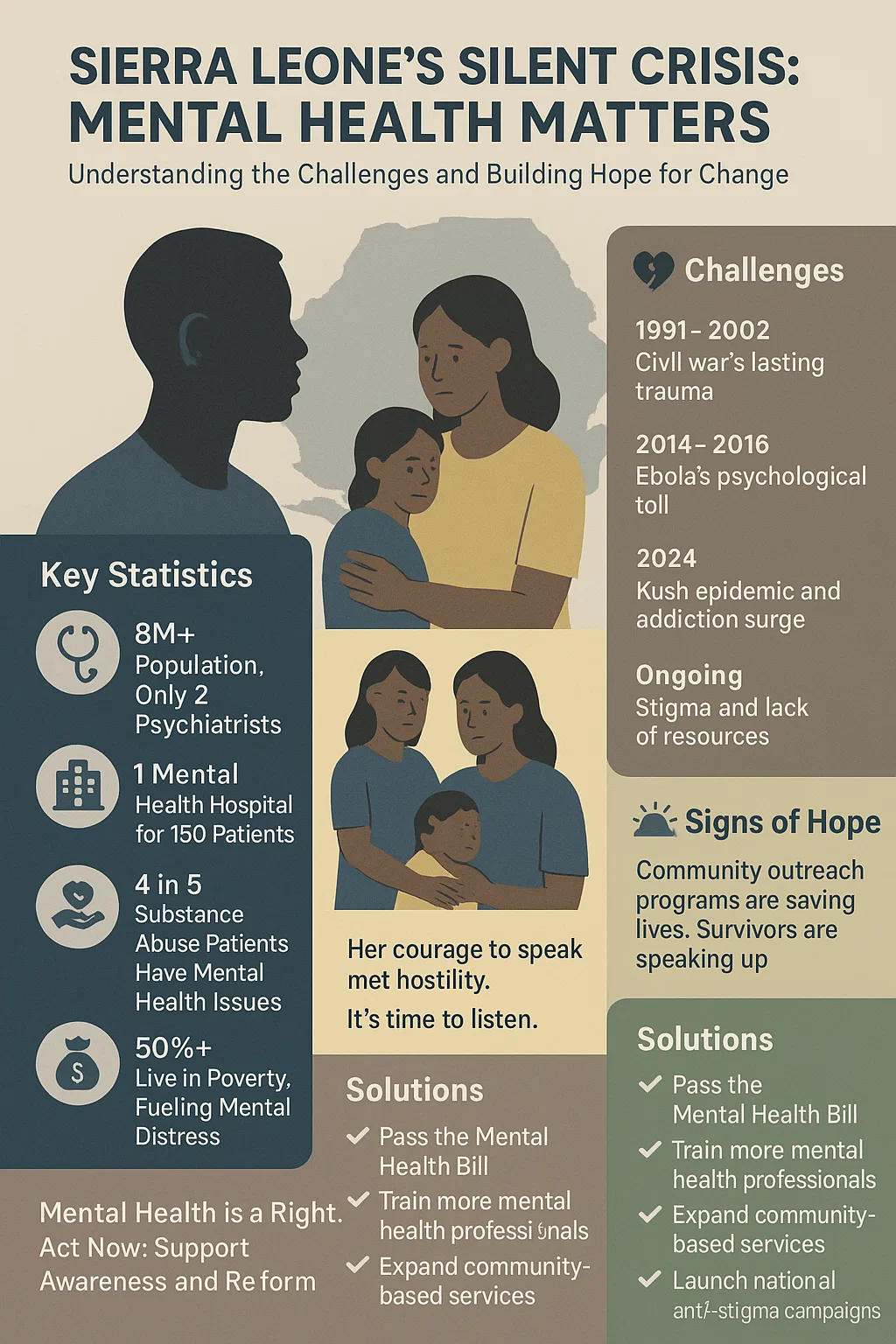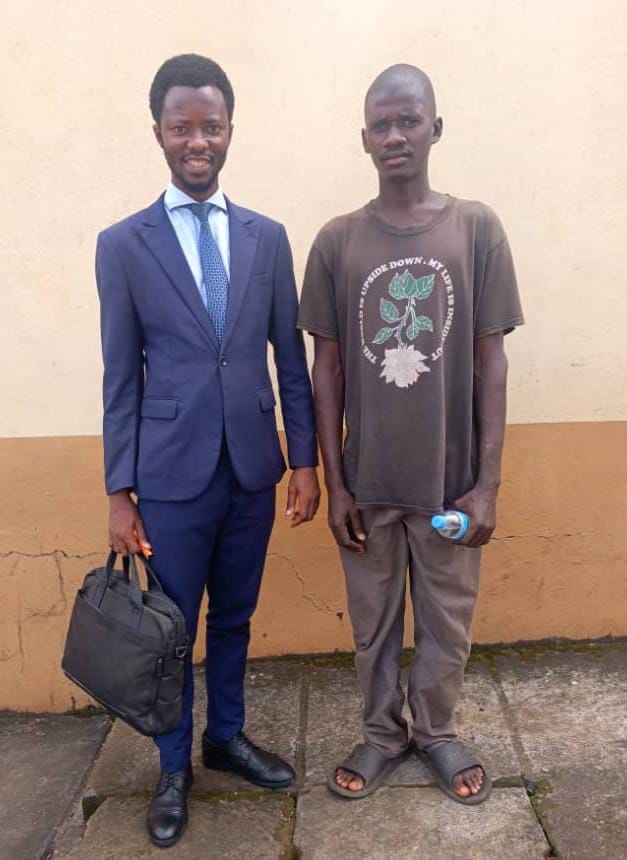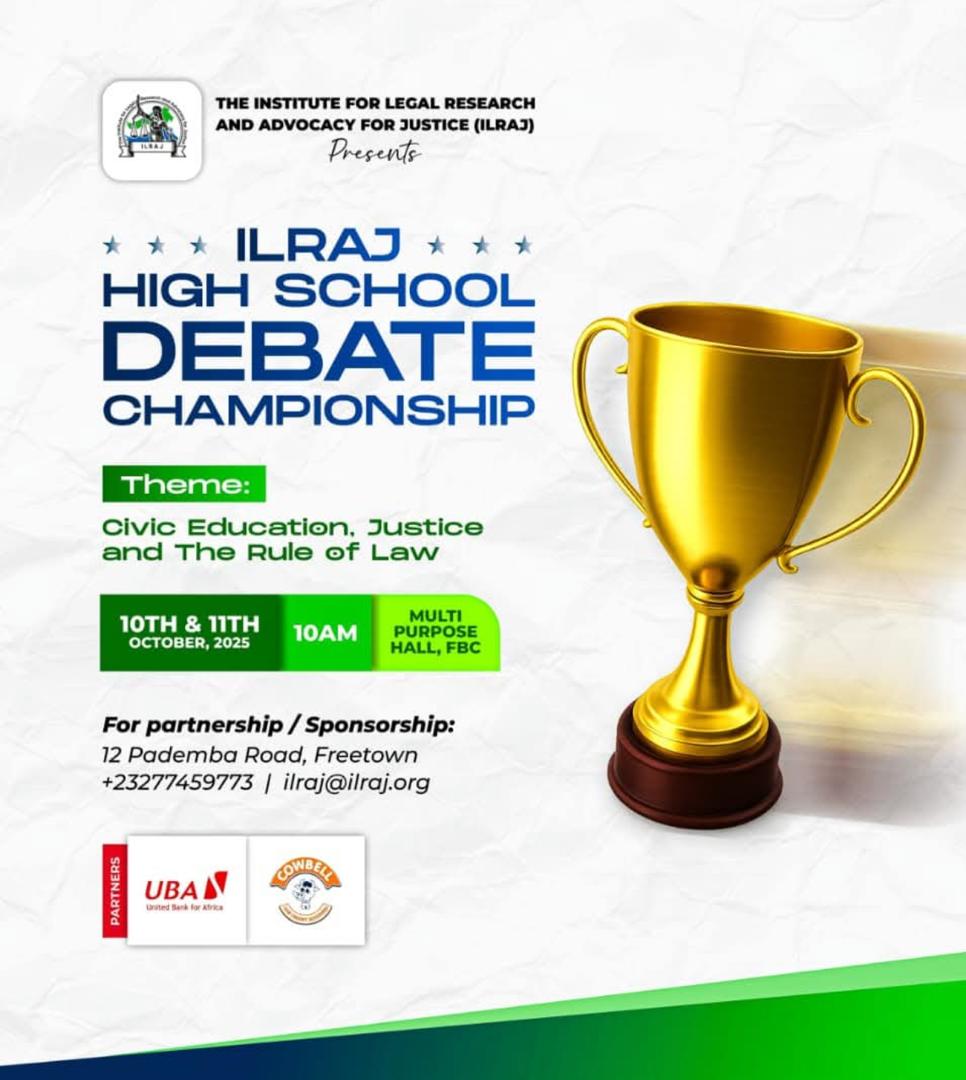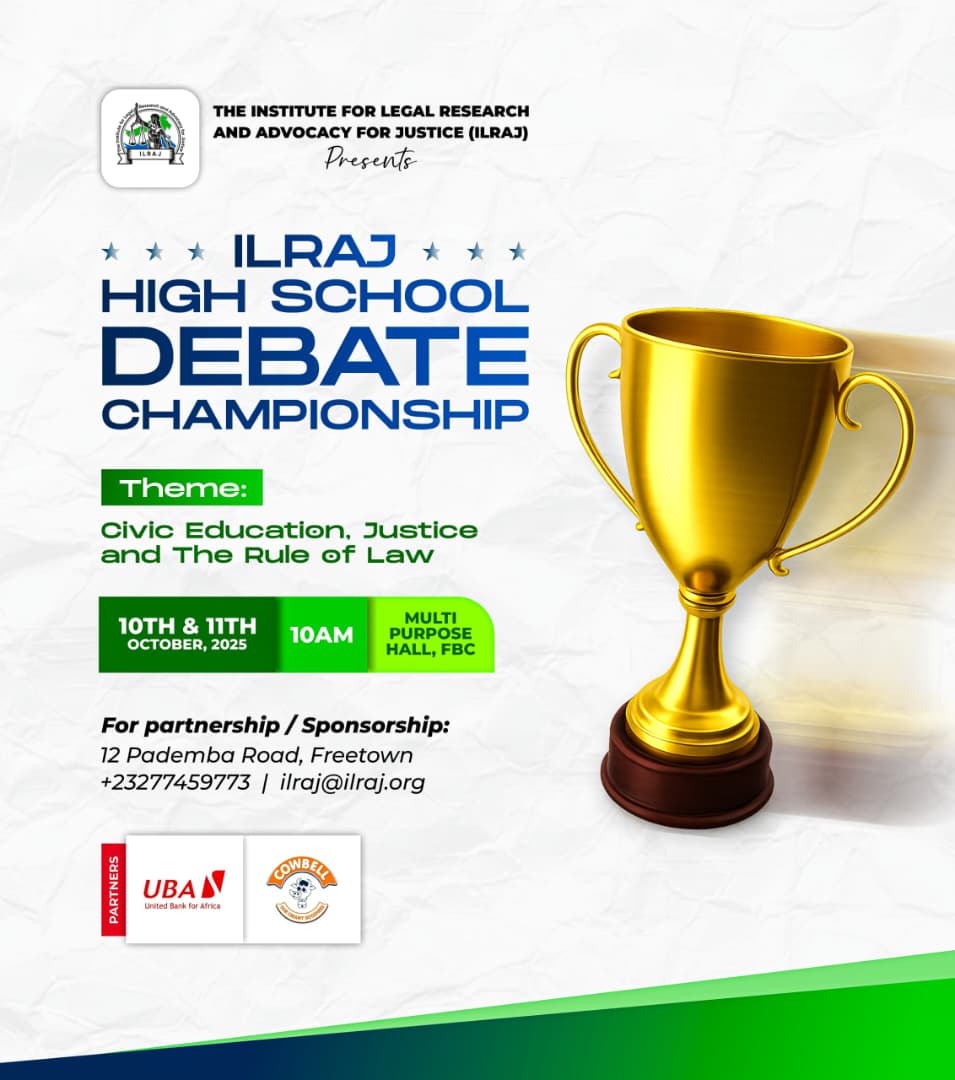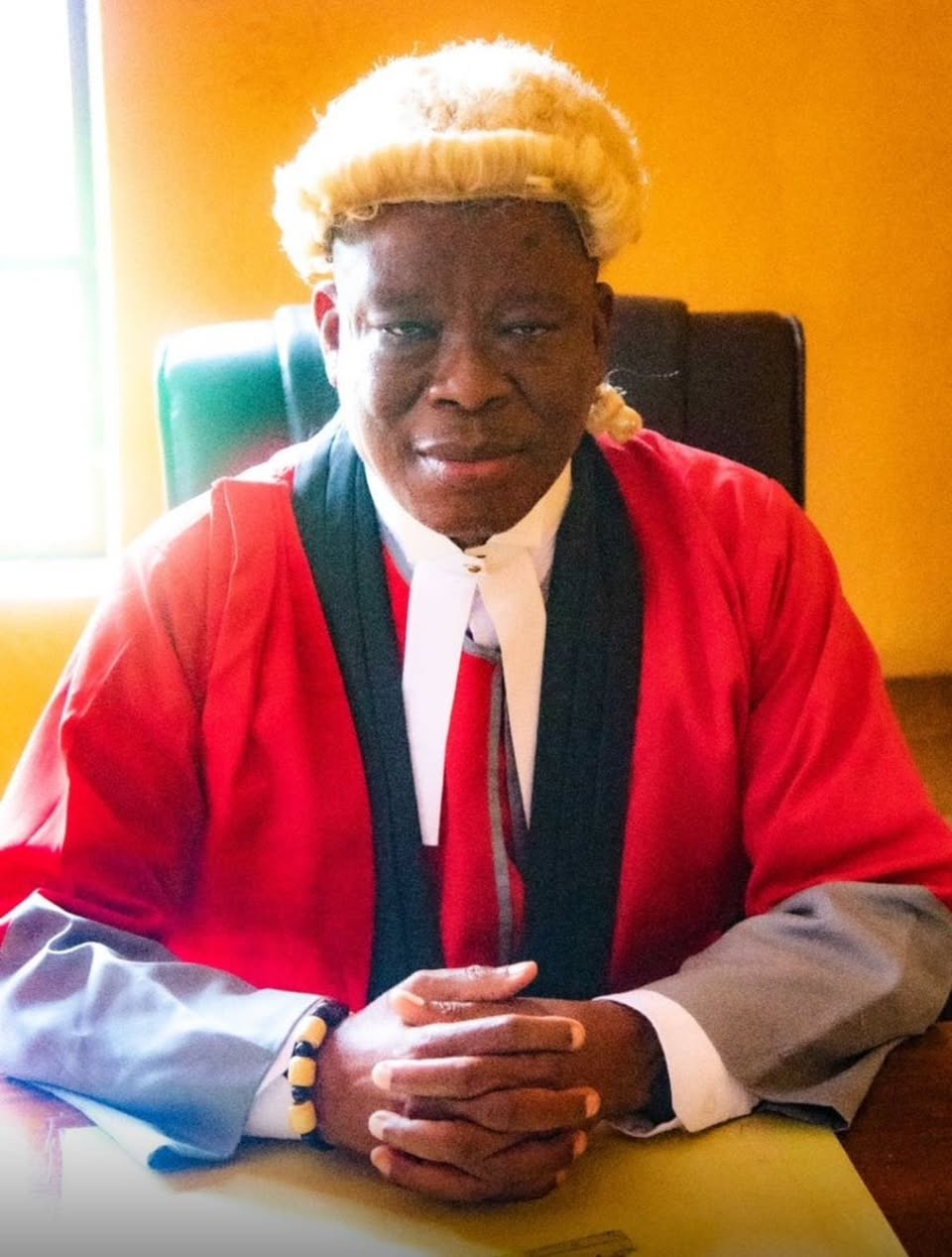The case stated by Hon. Justice Adrian Fisher J. to the Supreme Court of Sierra Leone raises crucial constitutional and procedural questions regarding the right to a fair trial, particularly in murder cases post-abolition of the death penalty. The case involves the State (1st respondent), represented by the Law Officers Department, and Ikubolaje Nicol, who is the accused and the 2nd respondent in this case.
The case revolves around the murder charge against the 2nd respondent, dated April 18, 2023. The allegations are that the 2nd respondent conspired to commit murder on October 15, 2022, and subsequent dates in Leicester Village, Freetown, involving Sinnah Kai Kargbo. After a preliminary investigation by the Magistrate’s Court, the case was elevated to the High Court, assigned to Hon. Mr. Justice Adrian Fisher J. The 2nd respondent pleaded not guilty upon arraignment.
The State applied for the trial to be conducted by a judge alone instead of by a judge and jury, citing Section 144(2) of the Criminal Procedure Act 1965 and the Abolition of the Death Penalty Act 2021. Counsel for the 2nd respondent objected to this application on procedural and constitutional grounds. They argued that the application should have been brought in by a notice of motion and that, constitutionally, the accused has the right to be tried by a judge and jury in the case of murder, as per Section 23(1) of the Constitution. On the other hand, counsel for the State contended that trying the accused by judge alone doesn’t violate their right to a fair trial, especially since the death penalty has been abolished, and the sentence for murder is now imprisonment. The trial judge, Hon. Justice Adrian Fisher, presented the following questions for consideration by the Supreme Court:
- Whether the application to have the accused tried by a judge alone is discriminatory and violates the right to a fair hearing.
- Whether the absence of guidelines for such applications renders them unconstitutional.
- Whether pre-existing powers for judge-alone trials apply automatically.
- Whether the Attorney General’s exercise of prosecutorial powers violates the Constitution.
- Whether the exercise of such powers infringes on the constitutional right to a fair trial.
Counsel for the accused highlighted the importance of fairness and consistency in trial procedures, advocating for trials by judge and jury in serious offences like murder. They emphasized the subjective nature of the AG’s discretion under Section 144(2) and called for its objective exercise in the interest of justice.
Counsel for the 2nd respondent countered the arguments presented by the 1st respondent, emphasizing that the crux of the matter lies in Section 144(2) of the Criminal Procedure Act (CPA) and Section 23(1) of the Constitution, in light of the Abolition of the Death Penalty Act (ADPA). They stressed their client’s entitlement to a fair trial, highlighting that previous murder trials have been conducted by judge and jury, and argued against treating their client differently. The essence of their argument is that murder and treason cases should necessitate trials by judge and jury, not by judge alone. They underscored the subjective nature of the power vested in the Attorney General under Section 144(2) of the CPA, advocating for its objective exercise in the interest of justice, ensuring equal treatment before the law for their client.
Counsel for the 1st respondent maintained that the determination of a fair trial rests within the jurisdiction of the judge. They asserted the Attorney General’s absolute discretion under Section 144(2) of the CPA, emphasizing its unquestionable nature. They pointed out the absence of pending murder trials in the High Court involving judge-alone proceedings, citing ongoing cases related to robbery with aggravation as examples. Additionally, they highlighted the unique nature of treason cases governed by specific legislation such as the Treason and State Offences Act 1963, where the Attorney General lacks the discretion to opt for judge-alone trials.
Counsel for the 1st respondent defended the prerogatives of the Attorney General and highlighted the absence of precedent for judge alone murder trials in the High Court while also delineating the unique considerations governing treason cases. He defended the AG’s discretion, asserting its alignment with the right to a fair trial.
The case raises critical issues regarding the constitutional right to a fair trial, the legality of the AG’s application, the balance of prosecutorial discretion and fair trial rights, judicial review of discretionary powers, equality before the law, and compliance with constitutional fair trial provisions. The Court noted that the following issues were up for their determination:
- Prior to the Abolition of Death Penalty Act 2021, murder convictions carried the death penalty. Despite the abolition of this penalty, the imposition of life imprisonment with a minimum of 30 years remains a severe punishment. The issue arises as to whether the right to a fair trial, especially for serious offences like murder, is constitutionally protected, irrespective of changes in sentencing.
- Under Section 144(2) of the Criminal Procedure Act (CPA), the Attorney General has the authority to apply for a trial by judge alone instead of by judge and jury for offences not punishable by death. However, the exercise of this discretion must align with the general interest of justice. The question arises as to whether the AG’s application in this case violates the accused’s right to a fair trial and constitutes discrimination.
- The AG’s discretion to apply for trial by judge alone is not unfettered. While the law provides this power, it must be exercised judiciously and reasonably, considering the circumstances of each case. The Court must ensure that the accused’s right to a fair trial, guaranteed by the Constitution, is upheld while safeguarding the public interest and the administration of justice.
- The Court’s role includes reviewing the exercise of discretionary powers, especially when it pertains to fundamental rights such as the right to a fair trial. While the AG has significant prosecutorial powers, including the discretion to apply for trial procedures, the Court must ensure that these powers are not arbitrarily or unlawfully exercised.
- Every person facing criminal charges is entitled to equal treatment before the law, as guaranteed by the Constitution. The Court must assess whether the AG’s application for trial by the judge alone in this case constitutes discriminatory treatment compared to other murder cases since the abolition of the death penalty.
- Section 23(1) of the Constitution guarantees the right to a fair trial within a reasonable time by an independent and impartial court. The Court must determine whether the current provision in Section 144(2) of the CPA complies with these constitutional fair trial provisions, especially in cases of serious offenses like murder.
The Court comprising of Hon. Justice V. M. Solomon JSC, Hon. Justice M. Deen-Tarawally JSC, Hon. Justice A. S. Sesay JSC and Hon. Justice J.E.L. King JA ruled in favour of upholding the accused’s right to a jury trial, emphasizing the importance of fairness, proportionality, and public trust in the criminal justice system. The case has significant implications for the administration of justice in Sierra Leone, setting a precedent for future trial procedures in serious criminal cases.
The Court ruled that the right to a jury trial remains intact for offences previously punishable by death. Under Section 144(2) of the CPA, the AG should not exercise discretion to have the accused tried by a judge alone without demonstrating it serves the general interest of justice. It noted that the accused has the right to a jury trial, especially for serious offenses like murder, as affirmed prior to the abolition of the death penalty by the ADPA 2021. Writing the judgement of the Court, Hon Justice V. M. Solomon, JSC stated,
“A fair trial for murder prior to the passing of the abolition of the death penalty Act in 2021 would have meant a trial by Judge and Jury. That right has not been abrogated by the ADPA Act. All it has done is to abolish the sentence, and not the mode of trial for that special category of offences. The application by the AG unsupported by any rationale and advanced purely on the assertion that the CPA gives him the power to do so and that the Constitution says it cannot be enquired into, is misconceived and unsustainable.”
The Court must ensure that the decision to exclude the right to a jury trial is proportionate, respects fundamental rights, and serves the interest of justice. Prosecutorial discretion must be exercised fairly and lawfully, with due regard for the rights of the accused. The Court should upheld the right to a fair trial by jury for the accused so as not to undermine public trust. The matter was remitted to the High Court for trial by judge and jury. Hon Justice V. M. Solomon, JSC restated the age-old view that:
“The aim of any prosecution in a criminal trial is to present the case to the court by assisting the court to arrive at the truth and achieve justice for the victim and the community. Prosecutors also have a role in ensuring that the rights of all, that is, the accused and the victim are recognised and protected. There is clearly no necessity here that justifies the decision to exclude from this accused and from any other person facing a life sentence the right to be tried by a Judge and their peers. It should be stated that it is not the role of a prosecutor to seek a conviction at all costs. It is imperative that prosecutors act in a manner that guarantees a fair trial and maintains public confidence in the rule of law. That means that an application for trial by Judge alone should only be made if there are compelling reasons for doing so. As I have said above the fact is that the replacement sentence i.e. life imprisonment, significantly and severely curtails a person’s freedom and adversely impacts on their life.”
The review of the legal framework surrounding trial procedures, including historical precedents and key provisions of the Criminal Procedure Act 1965, provides essential context for understanding the complexities of the case. The analysis underscores the importance of balancing prosecutorial discretion with fundamental principles of justice and fairness, ensuring equal treatment before the law for all accused individuals. The Supreme Court decision represents a landmark in our legal landscape, reaffirming the importance of constitutional rights, procedural fairness, and judicial oversight in the administration of justice. It shed light on the intricate legal issues, offering valuable insights for legal practitioners, scholars, and policymakers.
The Director of Public Prosecutions Osman Kanu Esq, A. J.M. BOCKARIE ESQ AND P. J. WILLIAMS Esq represented the State
Rowland S.V. Wright ESQ., M. Bah ESQ and MS. Priscilla Wright for the 2nd Respondent.
Read the full judgement – https://sierralii.gov.sl/akn/sl/judgment/slsc/2024/1/eng@2024-01-30


